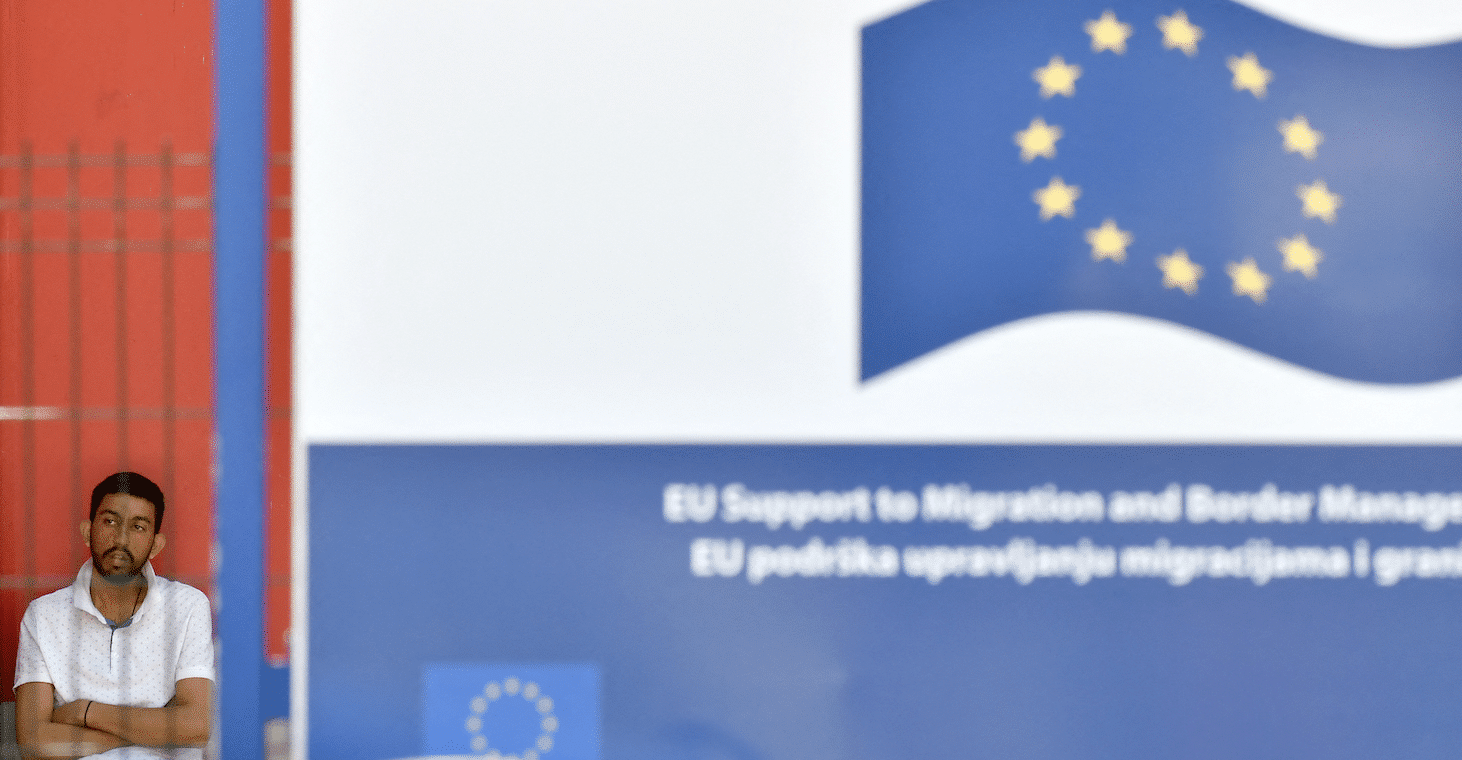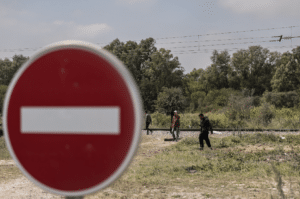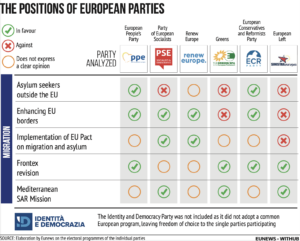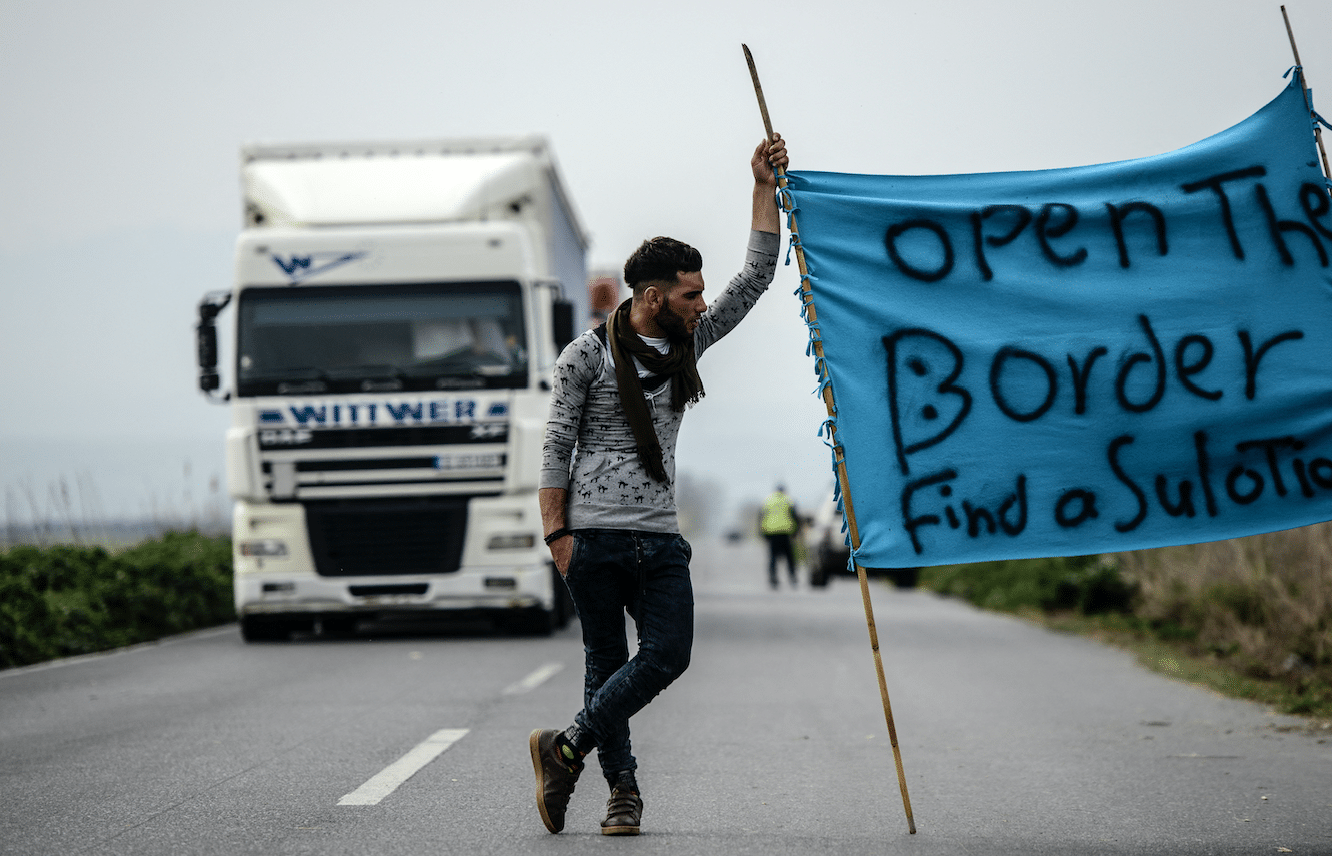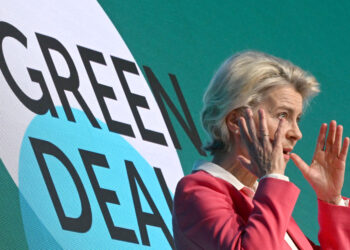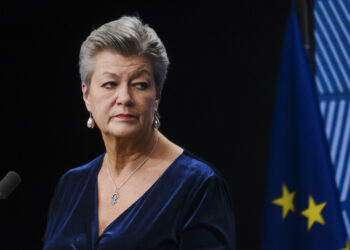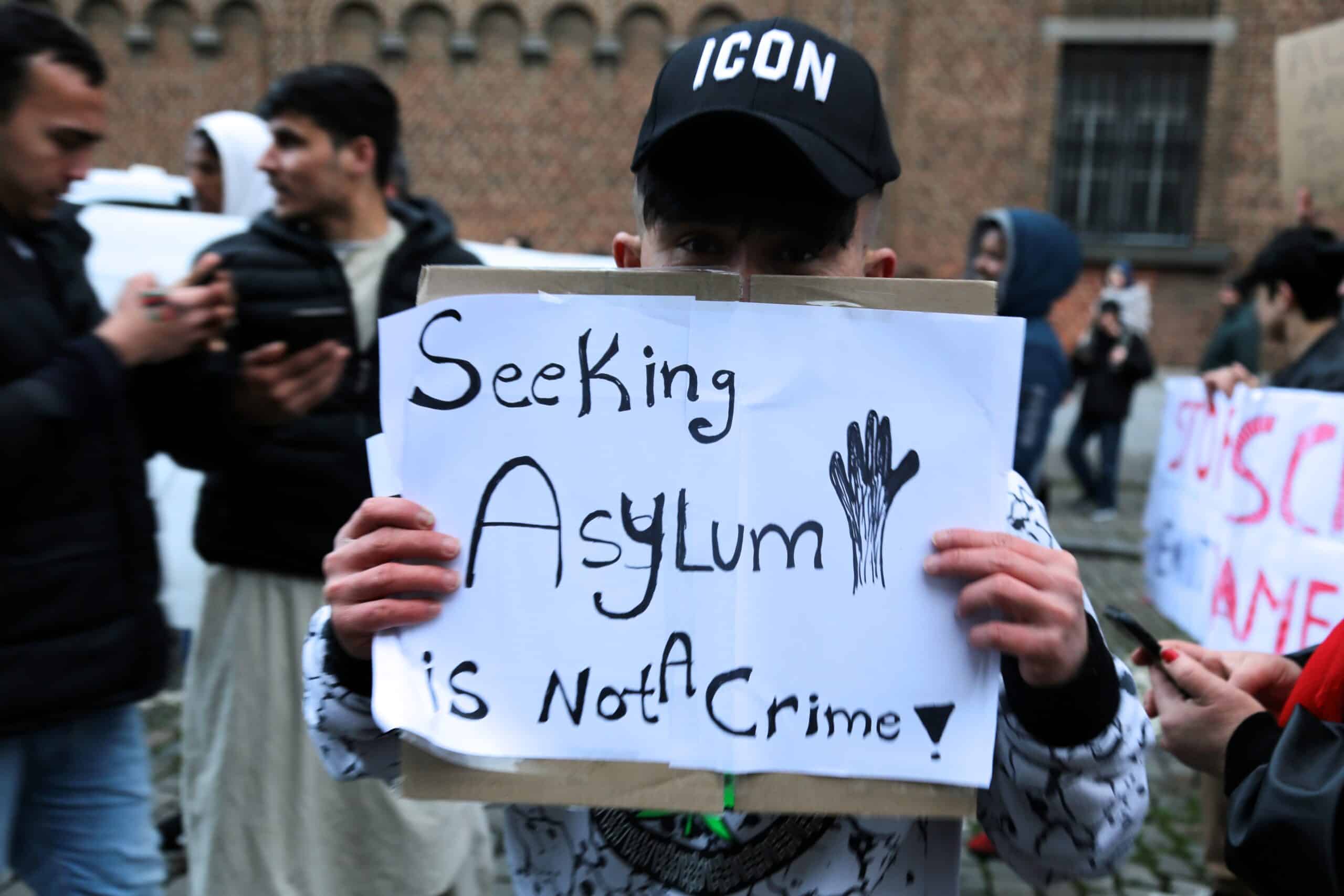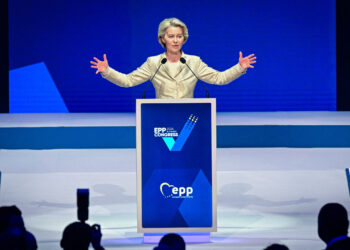Brussels – Migration, as always before the elections, is at the centre of the election campaign and party clash. Those who thought that the last-minute adoption of the Migration and Asylum Pact by this legislature—with the full enactment by June 2026—could make this issue marginal in the run-up to the June 6-9 European elections were#wrong. All the European political families (except Identity and Democracy, which chose not to adopt a joint electoral program) have placed migration management in the European Union and its 27 member countries among the most urgent priorities for the next legislature as well, placing the new Migration and Asylum Pact precisely at the centre of the debate, between those who are ready to overcome it with more restrictive policies projected to externalisation, those who heavily criticise or even want to cancel it, and those who vindicate it by now focusing on fair and responsible implementation.
The EPP and the Rwanda Model
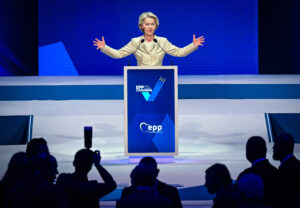
“Our Europe protects its borders from illegal immigration” is the title of the chapter on migration chosen by the European People’s Party (EPP) in its Manifesto for the 2024 European elections. The watchwords are “humanity and order,” with the leitmotiv that has been used for months by the chairwoman of the EU Commission and Spitzenkandidatin of the EPP, Ursula von der Leyen, in her radical change of narrative on migration: “European member states, and not smugglers, must decide who enters Europe.” The EPP’s priorities include “stronger external borders, with better and more rigorous screening” of irregular arrivals, “structural and technical border protection where necessary,” more burden sharing “in times of crisis,” better sharing of responsibilities among member states, the transformation of Frontex “into a true European coast and border guard,” and the possibility for the twenty-seven countries to “temporarily suspend the examination of asylum applications in case of instrumentalised migration.”
However, the real issue of the EPP Manifesto is the “fundamental change in European asylum law,” despite the fact that EU legislation itself has just been reformed. The change is one whereby the EU and its member states must have “the right to decide who and where to grant” asylum, where it is the “where” that raises the most concerns: “Any person seeking asylum in the EU could be transferred to a safe third country and undergo the asylum procedure there,” and in case of a positive outcome “the safe third country will grant protection to the applicant on-site.” Without mincing words—although the EPP is careful not to spell it out— this is the so-called “Rwanda model” wanted by the Conservatives in the UK and harshly criticised by the current European Commission. In addition to advancing the “safe third country” concept in this way, there are also plans to admit into the EU “annual humanitarian quotas of vulnerable individuals” to be granted international protection.
The PES and the claim of the Migration and Asylum Pact
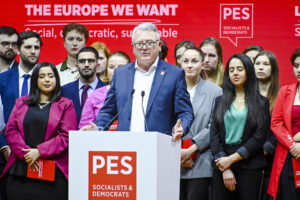
The Party of European Socialism (PES) sets its line on migration for the 2024 election campaign in a spirit of continuity with the work done over the past five years. “The Pact on Asylum and Migration finally moves the EU away from crisis management; its implementation must result in a fair, safe, and predictable approach, grounded on respect for human rights and people’s dignity,” is what is stated in the Manifesto programmatic statement, which focuses everything on the “common and coordinated migration and asylum system based on solidarity and shared responsibility.” Regarding its implementation, the European Socialists push for “fair and respectful” procedures, “safe and legal” pathways, and “humane and dignified reception conditions that respect our values and laws.”
There is no shortage of clarifications on the most critical points of the pact, such as the need to “protect and support especially children and minors,” to ensure “accessible legal assistance throughout the procedure,” and to make return decisions “in a safe and dignified manner.” The Socialists also say they are in favour of strengthening external borders—albeit “while protecting the security and rights of people”—but they spare no stokes for their main majority partners in the waning legislature and the von der Leyen Commission: “We will promote accountable and transparent partnerships with countries of origin and transit and oppose any form of EU border externalisation.” Last but not least, the one supporting a European search and rescue mission in the Mediterranean: “We will never criminalise humanitarian assistance.”
Renew Europe and “fair and humane” management

“What the migration debate needs is clarity and stability in the way it humanely manages migrations flows and asylum seekers“, reads Renew Europe‘s eighth priority for European elections 2024, explaining each keyword. “Managing” means “proper control of our external borders” as opposed to traffickers, “humanely” that people’s lives and dignity “must be at the centre” of EU action. Legal clarity “for those seeking refuge” and efforts to “prevent the problems that force people to flee their homes” underpin the “clarity and stability” called for by European liberals. And finally, “economic legal pathways should be evaluated so that European economies can have the workforce they need to grow.”
The Greens and Countering Far-Right Policies

The European Green Party is very harsh in its Manifesto about the line drawn in Brussels on migration and asylum in the last legislature. “Parties across the political spectrum let themselves be dragged towards far-right migration policies, as the EU’s new Migration and Asylum Pact sadly reflects,” which does not include one of the most sensitive points: “For us, the need for a mandatory relocation mechanism” among member states as a true element of responsibility-sharing is clear. Recalling that, as a fundamental principle of the EU, “the right to asylum is not subject to negotiation,” the European Greens propose progressive instances on replacing the use of the Temporary Protection Directive after the “successful” response to the refugee crisis from Ukraine, as well as on providing “climate visas to enable victims of natural disasters to seek protection and safety” in the Union and on “regulating long-term sans-papiers living in EU countries” to ensure “equal social, cultural, economic, and civil rights.”
The Greens’ lunge on current migration policies continues with a desire to “end the criminalisation of people on the move” inside and just outside the Union: “We must stop violence, torture, and inhuman and degrading treatment at European borders, illegal pushbacks must end.” Likewise, the “criminalisation of humanitarian assistance and the prolific use of states of emergency to limit access to asylum and the legitimate rights of refugees” must be curbed. That is why the proposal is to put in place an EU-funded and EU-led search and rescue mission in the Mediterranean and strengthen the “humanitarian mandate and responsibility of Frontex.” Intransigent opposition to the “dirty deals with dictators” signed in the last year by the von der Leyen Commission—”like the one with Tunisia”—in which the Union pays third countries to keep migrant people out: “We cannot accept that they are exploited for geopolitical advantages.”
ECR and the strengthening of border infrastructure
The European Conservative and Reformist Party (ECR) sets its election campaign on “protecting our borders” and with a choice of high-impact phrases in the field of migration and asylum for its Manifesto: “The EU must help member states manage migratory flows and not force citizens to welcome illegal immigrants without their consent.” Hence, the proposal is for a “comprehensive strategy” covering “all possible entry points, including air, land and sea borders.”
This strategy, according to European conservatives, requires both the “enhancement of border infrastructure funded by all member states” and “proactive measures” beyond EU borders: “We will increase repatriations” and “collaborate with third countries on the externalisation of migration management.” In line with what the EPP has proposed (but not dissected as much in detail), ECR also sets the goal of having “most applications for international protection be assessed directly outside the EU” and reintroduces the old issue of joint blockades and naval missions-not coincidentally already flaunted in the national election campaign in 2022 by the current Italian Premier and ECR chair, Giorgia Meloni—”to stop illegal departures.” Finally, a strengthening of the EU agencies Frontex and Europol, but only for the purpose of “helping member states to strengthen our external borders.”
The Left against Frontex and “Fortress Europe”

Particularly radical is the European Left Party in its programmatic lines on migration outlined in the Manifesto toward the June European elections. “The New Pact on Migration and Asylum must be cancelled, because it condemns refugees to detention and, in most cases, deportation,” is the attack on “Fortress Europe” accused of waging for decades “a war against migrants and refugees, causing violence, suffering and torture, with thousands of victims in the Mediterranean and along the Balkan route, and thousands of deportations.” The targets to be stopped are “Frontex, the outsourcing of borders, the transfer of detention centres to third countries, the financing of bloodthirsty regimes, and the administrative detention of those deemed unfit to remain in the EU.” In other words, “we call for the abolition of the Dublin Agreement and the dissolution of Frontex.”
On the level of pro-active proposals, the European Left intends to work “for a Europe without cages and barbed wire” and for a migration and asylum policy that respects international law: “We support the creation of safe, legal and regular migration channels,” but also the “improvement of protection, rights and assistance for migrants and asylum seekers,” which implies a “truly European” basis of “co-responsibility and obligatory solidarity among all member states”. Not forgetting the external dimension, whereby “if the EU wants to reduce the number of refugees and migrants, it must promote peace, stability and sustainable development” in the Middle East, sub-Saharan Africa and South Asia, “instead of participating in military interventions, fueling civil wars and exploiting natural resources.”
English version by the Translation Service of Withub